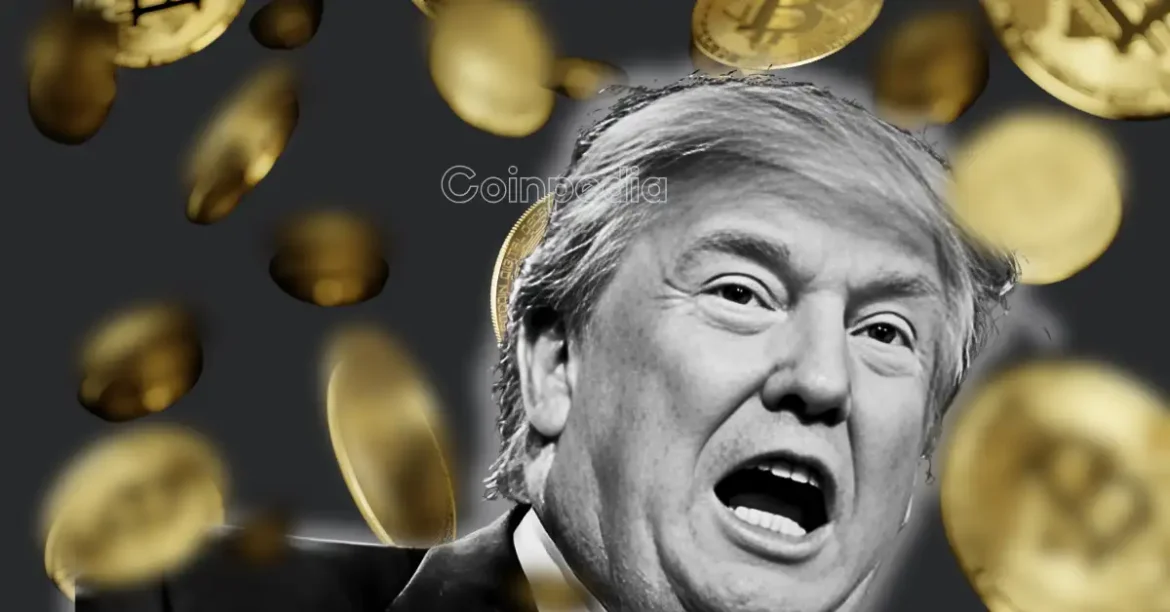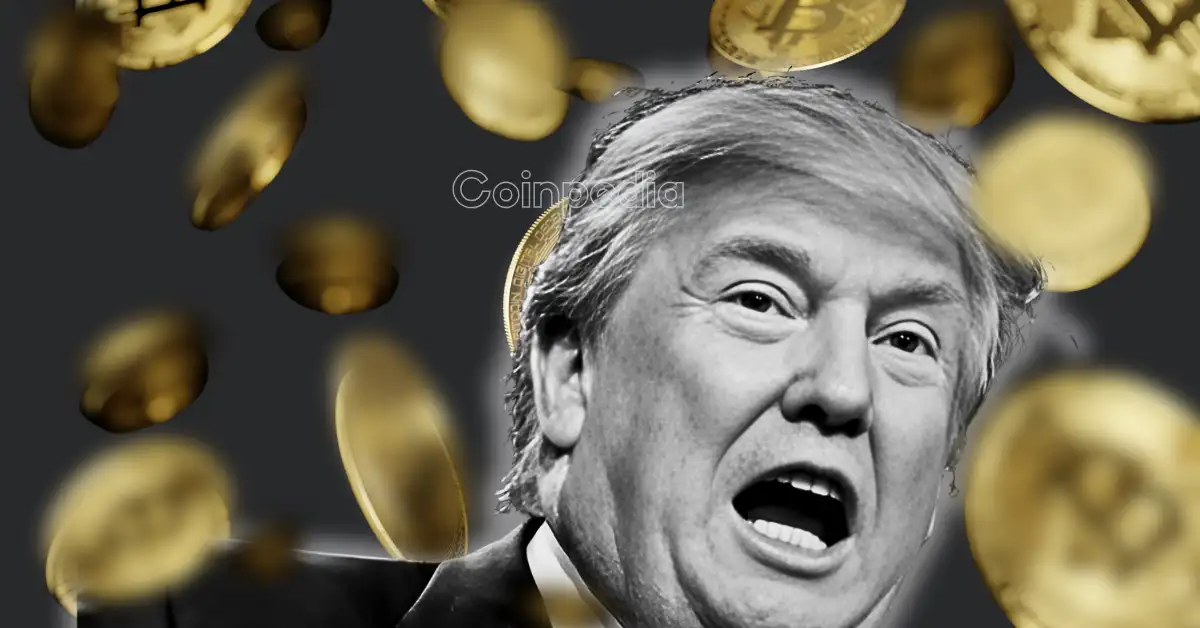The Intersection of Cryptocurrency Regulation and Allegations of Corruption Surrounding Donald Trump
The debate over digital asset regulation in the United States has reached a critical and contentious juncture, intensified by allegations against former President Donald Trump involving his cryptocurrency ventures. Legislative efforts aiming to establish regulatory clarity for the burgeoning crypto sector are embroiled in political turbulence, with Trump’s involvement at the core of a wider discourse on ethics, conflicts of interest, and the future governance of digital assets.
The CLARITY Act and its Legislative Landscape
Central to the ongoing discussion is the Digital Asset Market Structure bill, more commonly known as the CLARITY Act. Introduced by Republican Committee Chair French Hill, this comprehensive 236-page legislation seeks to delineate regulatory frameworks for cryptocurrencies by defining the jurisdictional roles of the Securities and Exchange Commission (SEC) and Commodity Futures Trading Commission (CFTC). Its objective is to provide definitive guidance on digital asset market oversight, potentially stabilizing and invigorating the U.S. crypto market.
However, the bill is facing intense scrutiny and backlash. Critics, notably Democrats and some crypto watchdogs, argue that the CLARITY Act inadequately addresses corruption risks and fails to impose sufficient safeguards against conflicts of interest. Its perceived permissiveness has stirred fears it might inadvertently foster regulatory loopholes favoring special interests rather than protecting the integrity of financial markets.
Trump’s Crypto Ventures: A Nexus of Controversy
Compounding legislative challenges is Trump’s direct involvement in cryptocurrency projects that critics allege blur ethical boundaries. Key points of contention include:
– The $TRUMP Memecoin: Trump’s promotion of a meme-based cryptocurrency, paired with exclusive investor events such as high-priced gala dinners where top buyers reportedly received private access to him, has been widely labeled as “an orgy of corruption.” Such events raise questions about leveraging political capital for personal enrichment under the guise of cryptocurrency entrepreneurship.
– The Trump Family’s Stake in Crypto Projects: The Trump family holds a significant share—approximately 60%—in ventures like World Liberty Financial. This concentrated ownership fuels apprehensions regarding insider trading, influence peddling, and conflicts of interest, especially as the administration’s crypto policies bear direct implications on these investments.
– Alleged Multi-Billion Dollar Deals Involving Foreign Governments: Reports of a $2 billion cryptocurrency deal involving the Trump family and foreign entities have triggered bipartisan alarm. Many Democrats view these arrangements as a blatant conflict of interest threatening the fairness and security of U.S. markets.
Legislative and Political Repercussions
The entanglement of Trump with the crypto industry has generated palpable friction within Congress, where party lines grapple not only over regulation but also over managing Trump’s crypto footprint. Observable consequences include:
– Stalled Legislative Efforts: Concerns over Trump’s crypto dealings have caused gridlock in advancing bipartisan bills, such as the stablecoin regulation legislation that would otherwise turbocharge market growth while enforcing stricter compliance frameworks.
– Democratic Walkouts and House Hearings: High-profile actions, such as the walkout by House Democrats during joint Agriculture and Financial Services Committee hearings, underscore the deep divisions and strong objections raised regarding the administration’s crypto entanglements.
– Calls for Tougher Corruption Controls: Voices like Senator Elizabeth Warren have vocally denounced the lack of rigorous anti-corruption measures in current bills, warning that without tightened rules, crypto legislation risks becoming a vehicle for systemic abuse.
Ethical Implications and Public Perception
From an ethical standpoint, the blurring between public office and private crypto interests under Trump’s purview raises constitutional questions about influence buying and misuse of presidential power. Critics claim:
– Potential Violation of Constitutional Norms: Promises of private meetings and preferential access tied to cryptocurrency holdings could be construed as leveraging public office for personal financial advantage, a constitutional red flag that fuels impeachment discussions among some experts.
– Public Distrust in Crypto Markets: The perception of “crypto corruption” tied to a former president undermines public confidence in digital assets as transparent and regulated financial instruments, possibly deterring broader adoption and investment.
– Protests and Public Backlash: High-profile public protests against Trump-hosted crypto events reflect societal unease and the growing demand for accountability and transparency in the rapidly evolving crypto ecosystem.
Broader Consequences for Crypto Regulation
The Trump crypto controversy illuminates systemic challenges facing U.S. cryptocurrency policy:
– Regulatory Ambiguity and Enforcement Gaps: As the SEC shifts focus away from certain prosecutions, state regulators and Congress are pressured to fill enforcement voids. Yet political entanglements inject uncertainty that complicates decisive and consistent regulatory action.
– Polarization Impacting Policy Progress: The political drama around Trump’s crypto involvement risks derailing or diluting comprehensive, bipartisan regulatory frameworks vital for market stability and investor protection.
– Urgency for Clear Moral and Legal Standards: The saga reinforces the necessity for lawmakers to craft regulations that not only advance innovation but also decisively curb opportunities for corruption and conflicts of interest.
Conclusion: A Crucible for Crypto Governance and Political Ethics
The heated debate surrounding the Digital Asset Market Structure Act and President Trump’s crypto ventures encapsulates the intricate intersection of emerging financial technology and governance ethics. As the U.S. forges its path toward comprehensive cryptocurrency regulation, the imperative to balance innovation with integrity has never been more acute.
Trump’s crypto dealings serve as both a catalyst and a cautionary tale—highlighting the vulnerabilities of nascent digital markets to political influence and underscoring the critical need for transparent, robust regulatory guardrails. How lawmakers resolve these tensions will significantly shape the future legitimacy and viability of the U.S. cryptocurrency landscape, influencing not only economic outcomes but also public trust in democratic institutions and market fairness.





